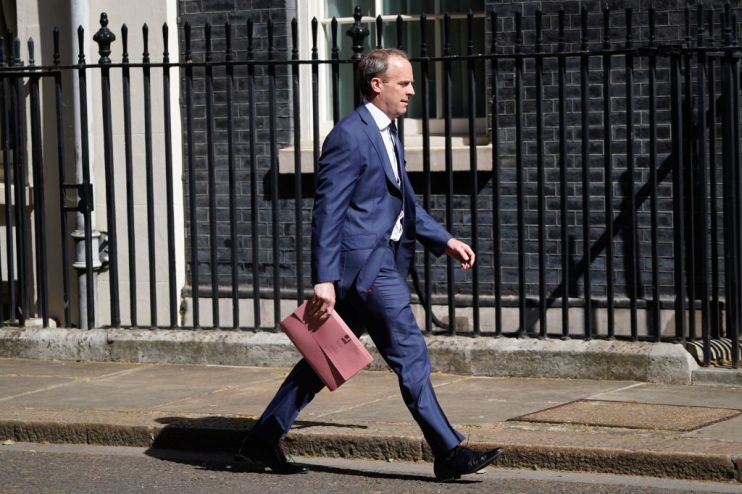Raab: UK will increase visa rights if China goes ahead with Hong Kong law

Foreign secretary Dominic Raab has told China that the UK will give greater visa rights to British nationals overseas passport holders unless it suspends plans to implement new security laws in Hong Kong.
Under the current legislation, such passport holders, of which there are an estimated 300,000 in the city-state, can stay in the UK for up to six months without a visa.
However, in a video statement, Raab has warned now Chinese authorities that this would be increased to 12 months if it goes ahead with its crackdown on the project.
He said: “If China goes down this path and implements this legislation, we will be required to change the status of BNO passport holders and set in train arrangements which allow them to come to the UK for longer than the current six month period and apply for extendable periods of 12 months to work and study, which itself will provide a pathway to citizenship”.
Home secretary Priti Patel echoed Raab’s words, tweeting:
“Deeply concerned at China’s proposals for legislation related to national security in Hong Kong.
“If imposed, Dominic Raab and I will explore options for a path to citizenship for BNO passport holders.
“UK will continue to defend the rights & freedoms of the people of Hong Kong”.
The comments came after the UK issued a joint statement with the US, Australia and Canada saying that the new Chinese legislation would “dramatically erode Hong Kong’s autonomy”.
Earlier this afternoon, a letter signed by foreign ministers of the four nations said the new clampdown by China was a breach of “the legally-binding, UN-registered Sino-British Joint Declaration” made when the UK handed Hong Kong back over to China in 1997.
The new laws, which were passed by China’s parliament today, would make it illegal to undermine the authority of the Communist Party of China in Hong Kong.
It will also likely lead to the set up of Chinese security agencies in Hong Kong for the first time.
Hong Kong’s pro-democracy activists have labelled the new legislation as an attack on the region’s autonomy and a move to bring it further under the control of Beijing.
The legislation is widely seen as a response to last year’s extensive protests against the Chinese regime, which in turn sprang from opposition to proposed extradition laws.
Yesterday police in the city-state arrested 300 protestors decrying the new laws.